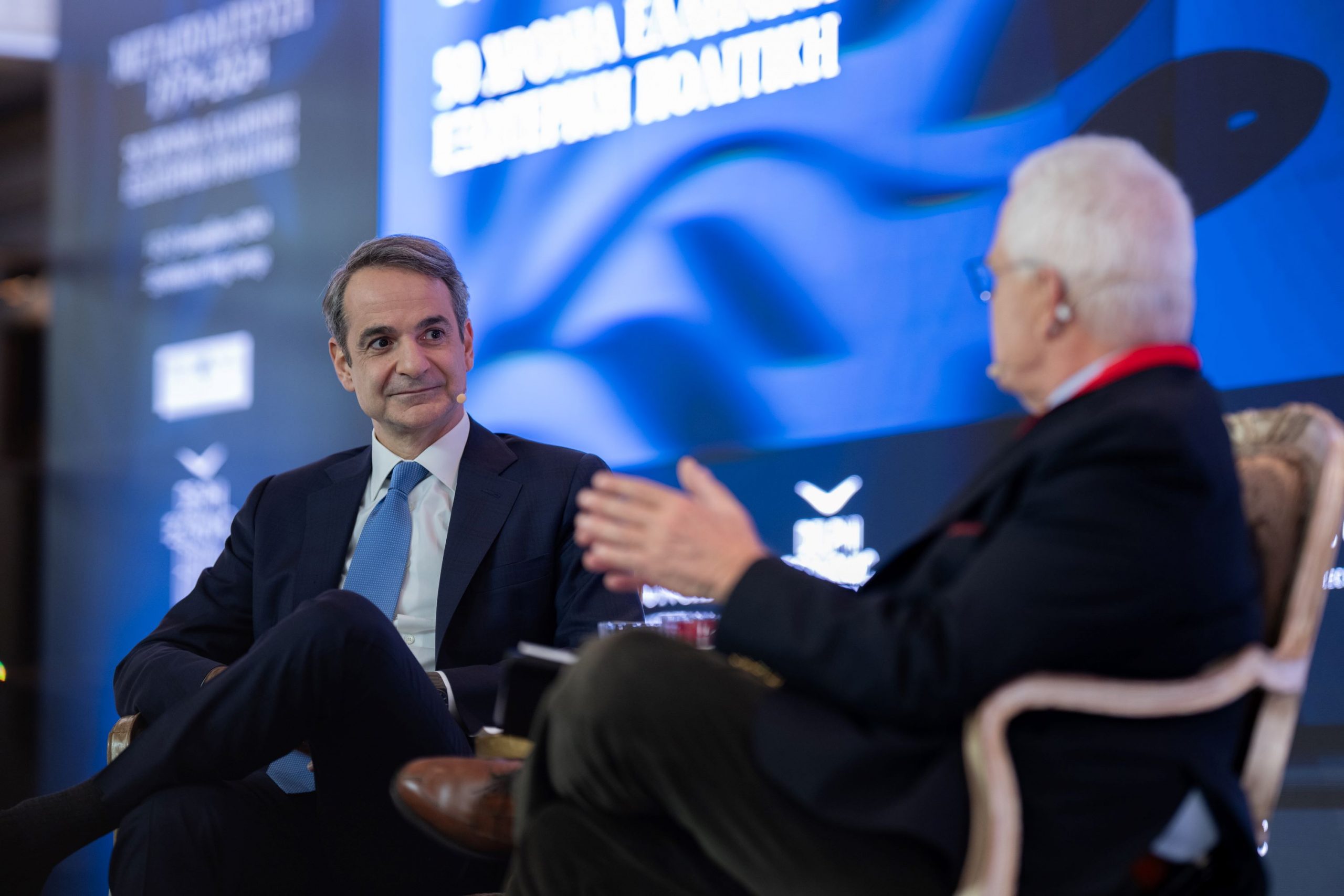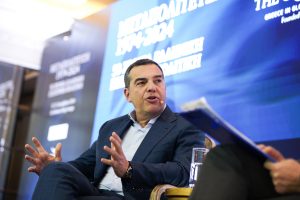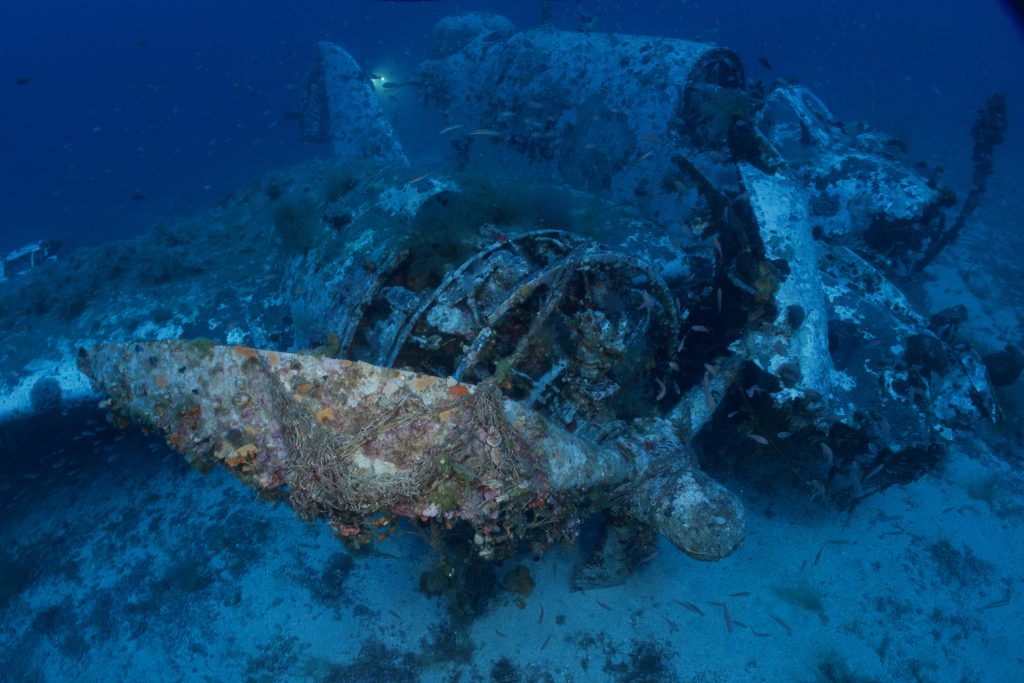Prime Minister Kyriakos Mitsotakis argued that Greece is and has been a part of the Western world.
“Not only do we belong to the West, but we are part of the West. The fact that we are dedicated to multilateral collaboration, international law, and we believe in the EU and our future in the EU,” said Mitsotakis. “There are other political parties who have attested all these achievements, but they have been able to adjust, and this is a positive.”
Mitsotakis spoke with Yannis Pretenteris, the publisher of To VIMA, to close out the two-day Conference “Metapolitefsi 1974-2024: 50 Years of Greek Foreign Policy”, organized by “To Vima”, The Council for International Relations and the Delphi Economic Forum.
Mitsotakis spoke both about the past 50 years of foreign policy, arguing where the New Democracy government had succeeded and other governments had come short, and commented on what he hopes for Greece going forward.
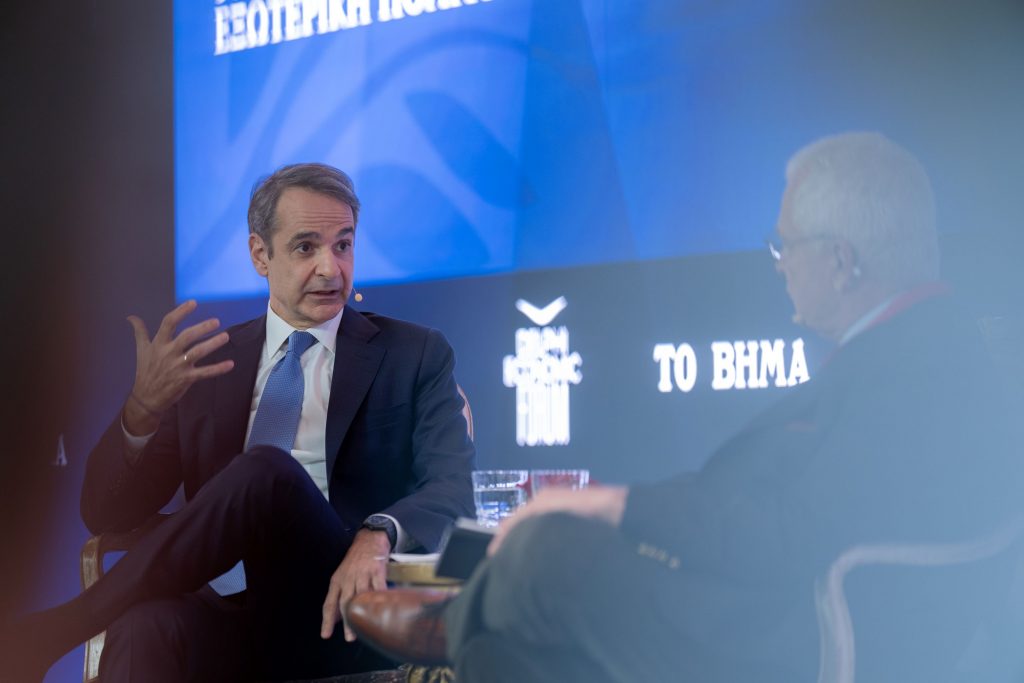
Fifty Years Since Metapolitefsi
“I think the course has not been a straight line without turbulence. If you look at the different decades which make up this 50-year period which made up the metapolitefsi to today it hasn’t been a straight line. For example, in the 80s our country experimented with third world ideas without having recognized the state of Israel,” said the Prime Minister.
“I have the honor of being head of a political party and this political party did not change its positions, it was always pro-Western.”
“The core of the political parties, with some degree of differentiation, embrace the values we have mentioned. And now in the 50 year anniversary this is a key, this is a success which we must recognize. I also want to stress that this is often reflected not in public statements, where it is easy to use foreign policy in order to be pleasant to your countryman. We see in PASOK there was a lot of anti-American sentiment and of course this was something it had to shy away from due to the harsh reality.”
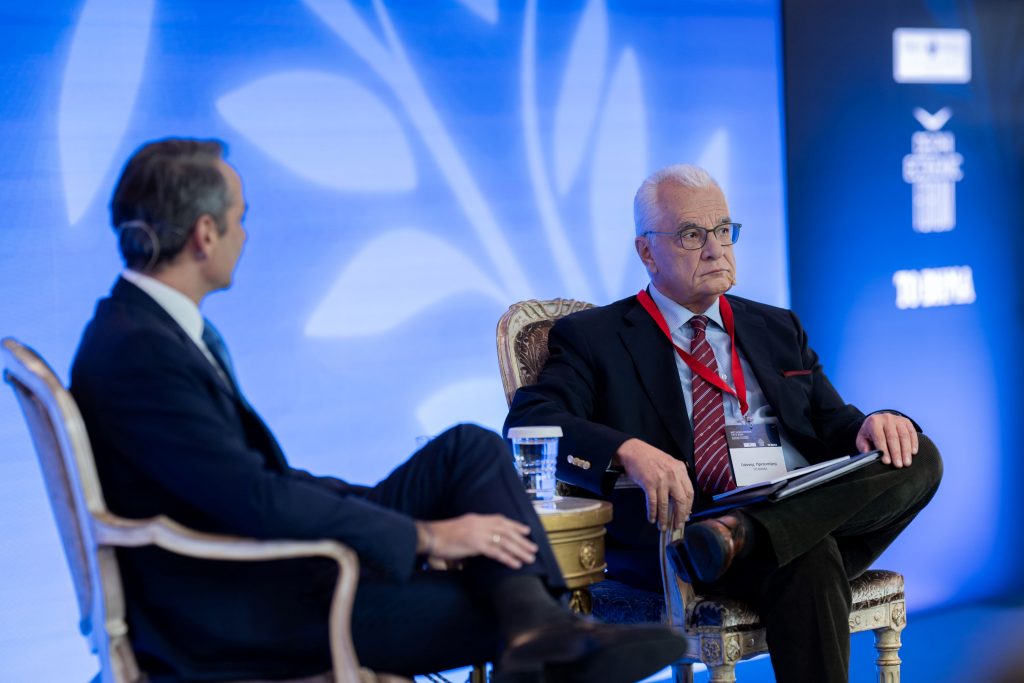
Domestic Political Parameters Vs Foreign Policy
Mitsotakis also spoke about the tensions between domestic politics and foreign policy.
“When we as a government were clearly on the sided with Ukraine after Russia’s invasion, we knew that it was a move that did not have much resonance in Greek society,” said Mitsotakis. “Greek public opinion, for different reasons– religious, historical social. But we were able to clearly explain our position. […] Choices that require some political courage may become popular.”
“When we stood up and protected our borders in Evros we didn’t do it because it was popular, though it was, we did it because it was the right thing to do. This was a choice that was supported by all of the Greek people. But were we able to do it? That is where we are judged on the effectiveness not the popularity of our policy.”
Defense Spending
Mitsotakis focused on the need for more defense spending from Europe, and Greece’s commitment to NATO.
“The war in Ukraine concerns Europe. The issue obviously concerns us and concerns us for one more reason,” stated Mitsotakis. “I have to tell you that when Trump first held European prime ministers accountable in 2017, he was right. Europe needs to take its defence more seriously.
“We come to this debate not just with our argument strong, but with the acquis of a country that spends over 3% on its defense.”
Relations with Turkey
Mitsotakis also warned that the relationship with Turkey was a delicate and volatile one.
“Turkish revisionism has not begun in the last five years. Let me remind you of Imia in 1996, let me remind you that we have had violations all the time, let me remind you that the open wound of Cyprus has been open since 1974,” said Mitsotakis. “What have we seen in recent years? […] We had the attempted invasion of Evros. We had the difficult August 2020 and a period of prolonged tension in which Greece remained firm in its position.”
However Mitsotakis also underlined foreign policy advances in the Greek relationship with Turkey: “After the earthquakes there was an attempt to re-engage. We have cooperation with Turkey on migration issues. At the same time we have the armouring that shields the relations between Europe and Turkey. We have explored the possibility of getting to the core of the central dispute we have with Turkey, which is the EEZ and the continental shelf. I don’t see any prospect of having that discussion.”
He argued that disagreement with Turkey should be solved negotiation and discussion: “The debate with Turkey can go on. We can agree that we can disagree civilly. I have lived through times when the armed forces were on alert. Obviously if necessary we would do it again, but we hope we will not have to. Our disagreement should not lead to unnecessary tensions.”
On Syria
“We obviously have a role and a say in what is happening in Syria,” claimed Mitsotakis. “For three reasons. Because we are close, because we are the natural custodians of the Orthodox element and because we are on the front line of the refugee problem.”
On the Economy
“Indeed, 2024 was an unhappy year for governments. I am referring to the accumulated inflation which created problems for all the governments of the world,” he said. He argued that New Democracy has a solid parliamentary majority despite the inflation. And said “I believe that in regard to the economy the best is ahead of us. We see that prices have stopped going up at the rate they were going up.”
The Next Elections
“What will happen in 2027 is a long way off,” said Mitsotakis. “No one can predict what the distribution of electoral forces will be. I believe that independent governments are better than coalition governments. You see what happened in Germany.”
“All I can say is that in Europe they change governments, here they change oppositions.”
Mitsotakis concluded: “The greatest danger is the danger of the arrogance of power. The danger of isolation within the prime minister’s office. It is no coincidence that I choose to be constantly outside and traveling. Many times things are not as we think they are. When there are good proposals, we should courageously say ‘let’s do it.’”
